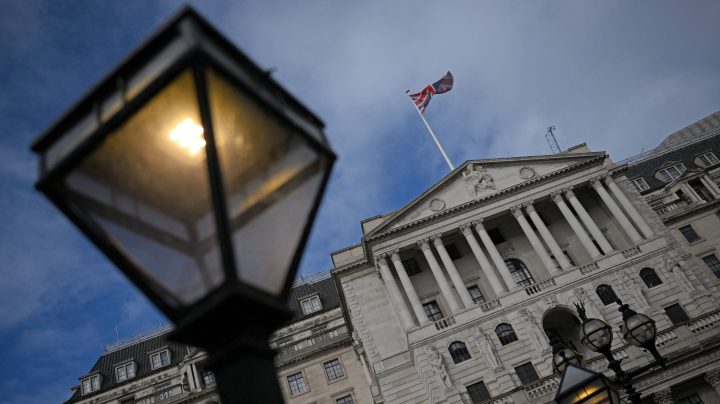
After raising rates to combat inflation, the Bank of England is buying bonds to bring rates down
After raising rates to combat inflation, the Bank of England is buying bonds to bring rates down

The weak pound isn’t the only problem facing the U.K.’s economy. Wednesday morning, the Bank of England announced that over the next 2½ weeks, it’s going to be taking a pretty drastic measure, by central bank standards — buying up as much long-term U.K. debt as it can get its hands on.
You may recall that the Federal Reserve did the very same thing — known as quantitative easing — to help lift the U.S. economy out of the Great Recession.
The BoE said it’s making the move to “restore orderly market conditions.”
Markets in the U.K. have been anything but orderly since the British government proposed a number of tax cuts that it plans to pay for by going deeper into debt.
The Bank of England is stepping in to buy bonds because the interest rates on those bonds have been rising. Quickly.
And buying them will push interest rates down.
Sebastian Mallaby, senior fellow at the U.S. Council on Foreign Relations, said rising rates were threatening the stability of Britain’s bond market.
“Both the bond market and its functioning, the uses of those bonds in pension funds and so forth, and then potentially also the government’s borrowing costs and solvency going forward,” he said.
Now, if trying to push rates down sounds unusual these days, Mallaby said, uhhh, yeah.
Central banks around the world, including the Bank of England, have been raising interest rates to combat inflation.
“Those two imperatives push in the opposite direction,” he said. “You know, if you want to stabilize inflation, you have to raise rates. If you want to stabilize the bond market, you have to cut rates.”
That might sound like the Bank of England is trying to chug caffeine and alcohol at the same time.
But Jim Vogel at FHN Financial said you can think of the Bank of England’s bond-buying plan as a short-term fix.
“Once they can accomplish any kind of stability through the middle of October, their plan is to raise short-term interest rates enough by the end of the year,” he said.
That could eventually boost the value of the pound, which has been falling relative to the strong dollar.
Zachary Griffiths with the research company CreditSights said that has the Bank of England in a tough spot.
“Because the weakening pound adds to inflationary pressures, at least at the margin,” he said.
But even though the Bank of England is doing a temporary 180 on interest rates, the Federal Reserve certainly is not.
That could keep the dollar strong and the pound weak.
There’s a lot happening in the world. Through it all, Marketplace is here for you.
You rely on Marketplace to break down the world’s events and tell you how it affects you in a fact-based, approachable way. We rely on your financial support to keep making that possible.
Your donation today powers the independent journalism that you rely on. For just $5/month, you can help sustain Marketplace so we can keep reporting on the things that matter to you.











